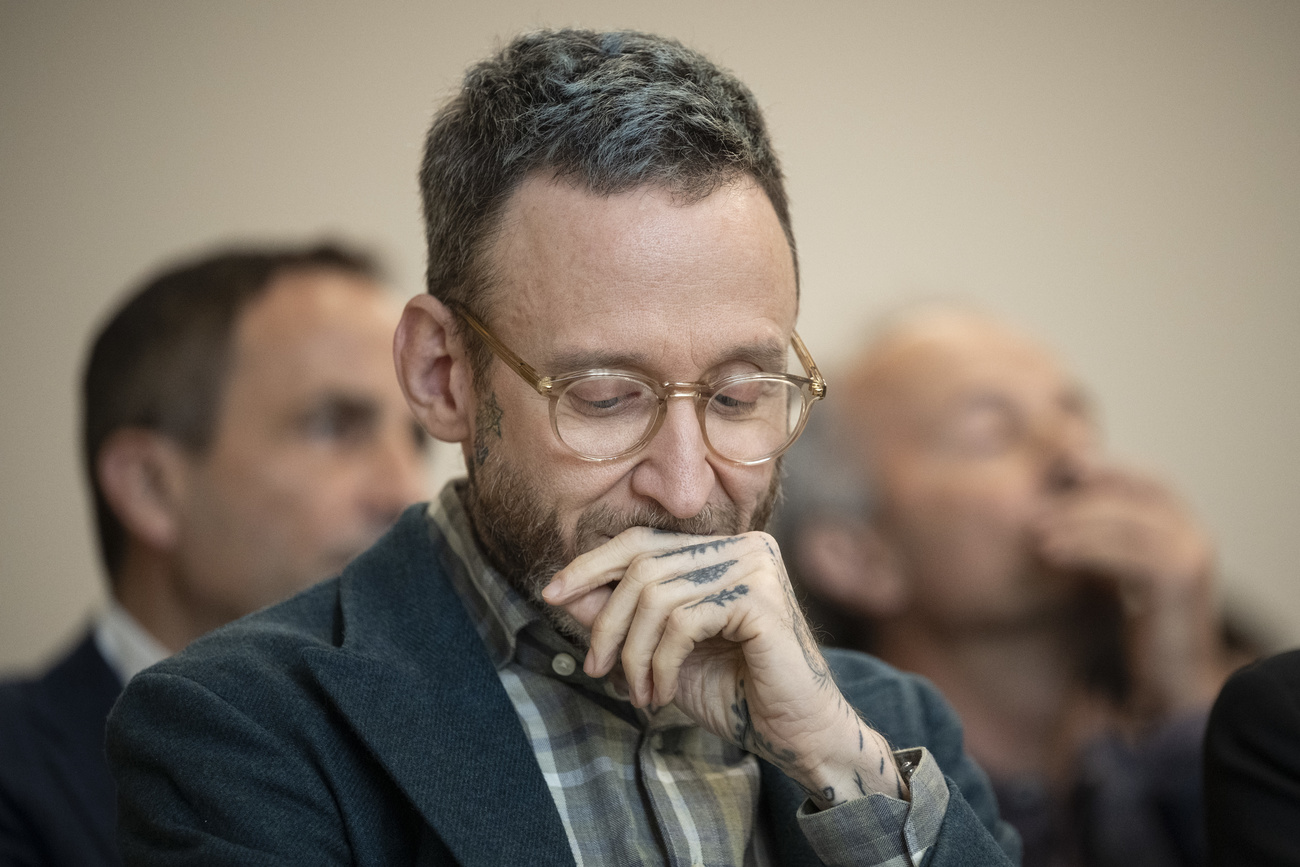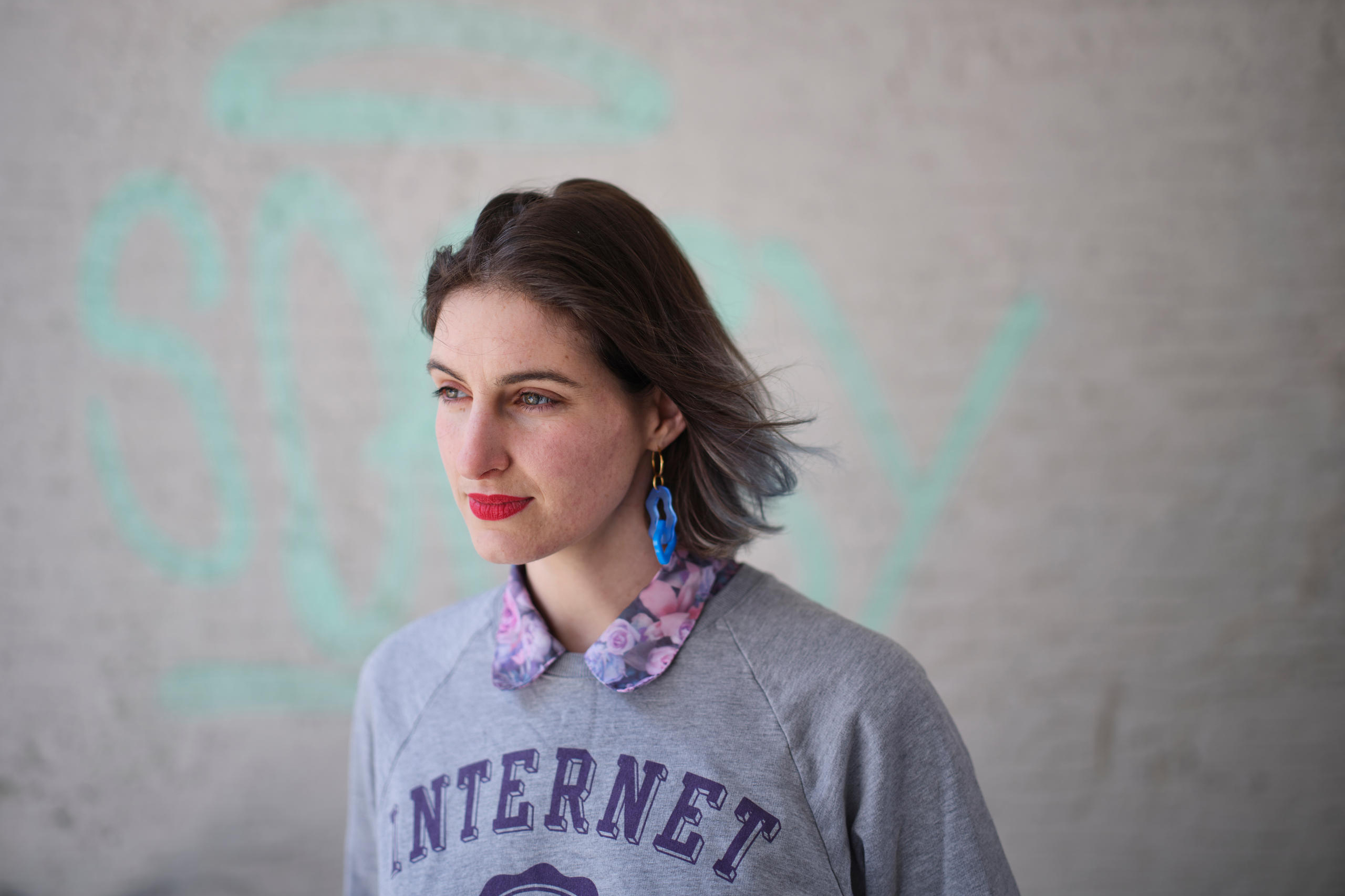
Anti-Semitism in Switzerland: ‘You’re insulted but you’re not supposed to feel it’

Many Swiss Jews do not want to talk publicly about anti-Semitism for fear of insults, threats or attacks. Others are now breaking their silence and reporting rampant anti-Semitism.
“Hitler didn’t finish the job”. Such statements were repeatedly heard at FC Hakoah junior football matches, says Sam Friedman, co-president of the club.
FC Hakoah, founded in 1922, is the largest Jewish football club in Switzerland. Anti-Semitism has no place in sport, says Friedman – but it is a reality and has been on the rise, he adds. Not only on the football pitch, but in general.
“Jews experience anti-Semitism more directly: from verbal abuse and serious assaults to attempted murder,” says the Swiss Federation of Jewish Communities (SIG) in its 2024 report on anti-SemitismExternal link.
Anti-Semitism at an unprecedented level
The sense of security among Jewish people and the security situation of Jewish institutions have deteriorated significantly, the report said. The SIG concluded that anti-Semitism in Switzerland is becoming entrenched at an unprecedented level.
Society and politicians have a duty to ensure the safety of Jewish life in Switzerland, it said. “There is not only a need for action but also a clear need to catch up,” said the SIG report.
It is not easy to find Jews who are willing to speak publicly about their experiences with anti-Semitism. For many, the fear of attracting the attention of anti-Semites is too great.
Gabriel Gutmann, co-director of a home for Jewish people with disabilities, is not intimidated, however. He regularly visits the synagogue to pray. “When I left the synagogue after prayer recently, I was accosted in a nasty way,” he says. Someone shouted “Heil Hitler” at him and called him a “Saujuden” (dirty Jew).
The last time he heard such insults was when he was in fourth grade. And now, suddenly, it happened again. He got a strange feeling and wondered if history was repeating itself. “At what point in history are we?” he asks.
October 7, 2023: peak of online anti-Semitism
The unprecedented wave of anti-Semitism that has swept across Europe was triggered by the terrorist attacks carried out by Palestinian militant group Hamas on October 7, 2023, and the subsequent war in Gaza.
The peak of global online anti-Semitism was measured on October 7, 2023, when Israel was attacked, even before the war in Gaza began. However, the SIG notes that the trigger in October 2023 had an impact throughout 2024.
“The persistent narrative that Swiss Jews are responsible for the war, the actions and the policies of Israel is particularly evident in the insults and statements,” stated the SIG.
This also includes the demand that Jews justify or distance themselves from this policy. In 2024, anti-Semitism in Switzerland reached an alarming peak, but it is not a new phenomenon.

More
Why more Jewish people in Switzerland are considering a move to Israel
Wera Meyer, born in 1941, still remembers well how she was called a Saujüdin during her school days in the city of Zurich. The teacher stood by and laughed.
“The fact that people throw insults in your face or speak badly about Jews in front of you hasn’t changed,” she says. “Now it’s just unrestrained.”
Her experience throughout her life has been disheartening. “No matter what we do, it’s always wrong,” she says.
Stereotypes are persistent
Thomas Meyer, a well-known writer, is the son of Wera Meyer. He also says that anti-Semitism has always been a part of his life. People immediately assumed he was Jewish because of his nose – he heard this repeatedly, for example.
When he responds that this is really an anti-Semitic stereotype, people say he is mistaken. Some insist that Jews do have big noses or that he is oversensitive. “You’re insulted but you’re not supposed to feel it,” he says.
“I’ve had to end more than one friendship because of this. The whole thing makes you feel helpless because you know there’s nothing you can do about it.”

More
Anti-Semitism in the Swiss left – still a taboo?
This year marks exactly 80 years after the end of the Second World War and the liberation of Auschwitz concentration camp. “#WeRemember” was projected onto the Federal Palace at the beginning of the year to mark the occasion. At the same time, record numbers of anti-Semitic incidents were reported.
‘It’s important not to hide’
“People thought they had learnt from the past that they knew where anti-Semitism could lead,” says Jonathan Kreutner, Secretary General of the SIG. And yet there is this wave of hatred towards Jews. “This is not good news,” he says.
Kreutner’s own family history is strongly marked by anti-Semitism. His grandparents fled to Switzerland from the Nazis in 1938. In a tearful interview in 1997, his grandmother, Ida Kreutner, recounted how she tried to cross the Rhine at the time and was stopped by three border guards with her son, still a baby, in her arms. The baby was called Robert and later had a son of his own: Jonathan Kreutner. Decades later, Kreutner stands at the spot on the Rhine where his grandparents arrived in Switzerland.

More
‘The boat is full’: 75 years later
“This is the origin of my existence. If they hadn’t survived, I would never have been born,” he says. Kreutner now has two children of his own.
“It’s important not to hide,” he says during an outing with his family. “If we start to no longer live our lives as we are used to, if we no longer attend Jewish schools or daycare centres or go to synagogue on holidays because we are afraid, then all those who wish us harm will have achieved their goal.”
He says if he can pass something on to his children, it is “don’t let yourselves be intimidated”.

More
Social issues reported by SWI swissinfo.ch
Adapted from German by DeepL/ac

In compliance with the JTI standards
More: SWI swissinfo.ch certified by the Journalism Trust Initiative


























You can find an overview of ongoing debates with our journalists here . Please join us!
If you want to start a conversation about a topic raised in this article or want to report factual errors, email us at english@swissinfo.ch.